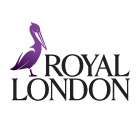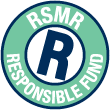


UK All Companies

sriServices SRI Style - Sustainability Select
Originally launched in 1990, the fund is based on positive screening by looking for companies that are providing a net benefit for society through their products and services. These companies can also demonstrate leading sustainable practices in the way they operate.
The fund adopted its current sustainable investment process in January 2004 and has benefitted from the same manager since that transition with Mike Fox joining the strategy in November 2003.
Click here to read the Royal London approach to ESG investing.
Mike joined RLAM in August 2013 following the acquisition of The Co-operative Asset Management by the Royal London Group. He is Head of Sustainable Investments at RLAM. Mike became a fund manager in November 2003 when he took over managing the RL Sustainable Leaders Trust. Prior to this, Mike worked as a deputy fund manager at the Co-operative employee pension fund for two years and as an investment analyst covering the utility, support services and media sectors. Mike originally trained and qualified as a chartered accountant with Ernst & Young in Manchester.
George joined Royal London Asset Management in February 2020 as a Fund Manager on the Sustainable Investment Team and is co-managing the Global Sustainable Equity Fund alongside Mike. Prior to this, George worked as an Investment Manager on the Global Sustainable Equity Team at Janus Henderson having joined Janus Henderson in 2010 as a graduate. George is a CFA Charterholder and has a BSc Economics and Finance from the University of Southampton.
Sebastien joined the Sustainable team as a Fund Manager in October 2020. He initially joined RLAM in 2014 as an Equity Analyst and then became a fund manager in the European team. Before RLAM, he worked in Paris as an Equity Analyst at Sycomore Asset Management and Comgest. Sebastien holds a Bachelor in Economics from the University of Savoy, a Master in Management from the Toulouse Business School in France and is a CFA Charterholder.
Please click on the 'Fund Data' button above
The investment process is set up to be mainly proprietary in nature, they do draw on third party research, but they are allowed to conduct their own work and review this research with their own eyes and create their own intellectual property. To be included in the fund, companies must first pass a sustainable as well as a financial assessment. To achieve this, a company is scored from both a sustainable and financial perspective to provide a consensus view of the company. The financial score is focused on value creation (returns ahead of cost of capital) and valuation (fair price) with the sustainable research focused on the company’s products and services (cleaner, healthier, safer, more inclusive society) and ESG leadership (encouraging good corporate behaviour). From this initial score, the Sustainable Equity team apply their differentiated analysis, this is the most important part of the process. Both the Sustainable and Financial elements of the scoring have a maximum score of 50 with a hurdle rate of 25 for each. Some areas are more easily quantifiable than others with subjectivity applied to some areas. If a stock scores above 25 on the sustainable side, then the company can go ahead to be scored on the financial side. The output from these scores is then applied to recalibrate the original positioning of the company on the sustainable and financial chart. The output from this may result in a company being recalibrated outside of the threshold for consideration or uplifted to be included for consideration.
Finally, portfolio construction takes place where three tiers are applied dependant on the sustainable and financial score. The upper tier consists of companies scoring above 70 with portfolio weights of between 3% and 5% and is typically 10 holdings. The middle tier consists of companies that score between 60 and 70 with portfolio weights of between 1% and 3%. The lower tier consists of companies scoring between 50 and 60 with portfolio weights below 1% and is typically 10 holdings.
Although the fund is bottom up in construction, based on proprietary research, there are themes that are a by-product of this process and do not drive stock selection. Themes within the fund include electric/autonomous vehicles, social infrastructure, and energy transition.
The fund focuses on using capital to support the transition to a more sustainable economy and as such is bottom up in construction. This is achieved by only investing companies that make products and services which help address major environmental and social challenges, including climate change, and are industry leading in their efforts to mitigate their environmental impact.
The fund is predominantly positive screened, although there are exclusions in place that filter out businesses in the areas of human rights abuse, tobacco and armaments manufacture, products which involve experiments on animals (except for those conducted for the benefit of human or animal health) and the generation of nuclear power. Companies are also avoided if they generate over 10% of their turnover from any one or a combination of the areas of animal fur products, pornography, irresponsible gambling, irresponsible drinking and worker exploitation or exploitative consumer practices.
Fossil fuels are sub divided into the three areas of extraction, power generation and services. For extraction, the fund will not invest in oil and gas or coal mining companies. For power generation, if the company has material exposure to renewable energy with a commitment to move away from gas and coal, the team will consider investing. For services, if a company is providing services to extractive industries that are making them safer and materially improving their environmental impact, the team will consider investing.
There is an external Advisory Committee that independently challenges and provides insight into the environmental, social and governance analysis conducted by the Sustainable Investment Team.
The fund has been deploying the same process over the long term and has a very well-resourced internal team. The fund is managed on a co-manager basis (one of which is Head of Sustainable Investment at RLAM) and is very much a team approach with the process at the centre of the team and each team member feeding into this process. The proprietary intellectual property of the team is fundamental to the process, although third party research is used by the team, however the team are not dictated by third party research as it is more a yard stick for them to use to demonstrate their alpha.
In addition to UK equities, the fund does contain exposure to global equities. The global positions are used to offset areas that are excluded from the fund due to the process as well as providing exposure to industries where there is no UK equivalent.
The exclusions applied to the fund, combined with the proprietary analysis, has resulted historically in higher technology weightings versus the index.
The fund is suitable for investors looking for exposure to UK equities whilst adopting a proprietary investment process that seeks companies that are providing solutions to environmental and social issues.
Important Notice
This document is aimed at Investment Professionals only and should not be relied upon by Private Investors. Our comments and opinion are intended as general information only and do not constitute advice or recommendation. Information is sourced directly from fund managers and websites. Therefore, this information is as current as is available at the time of production.
Rayner Spencer Mills Research Limited is a limited company registered in England and Wales under Company. Registration Number 5227656. Registered Office: Number 20, Ryefield Business Park, Belton Road, Silsden, BD20 0EE. RSMR is a registered trademark.